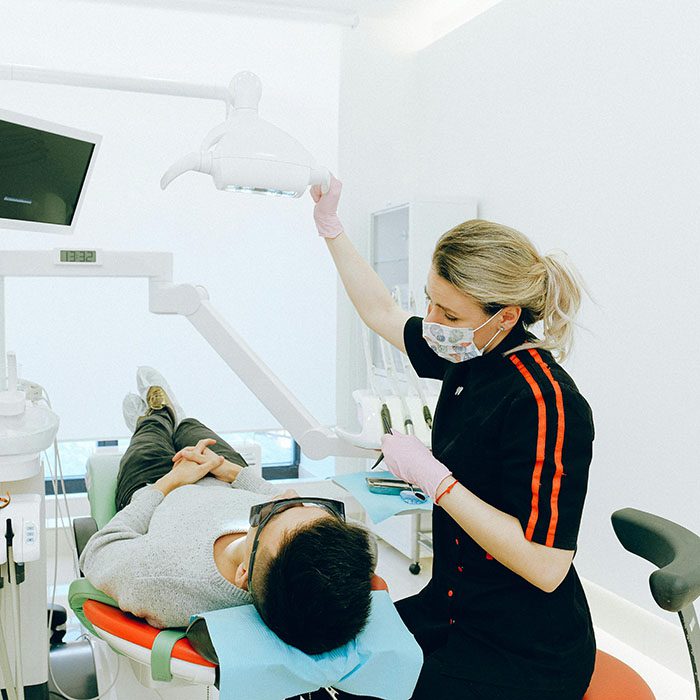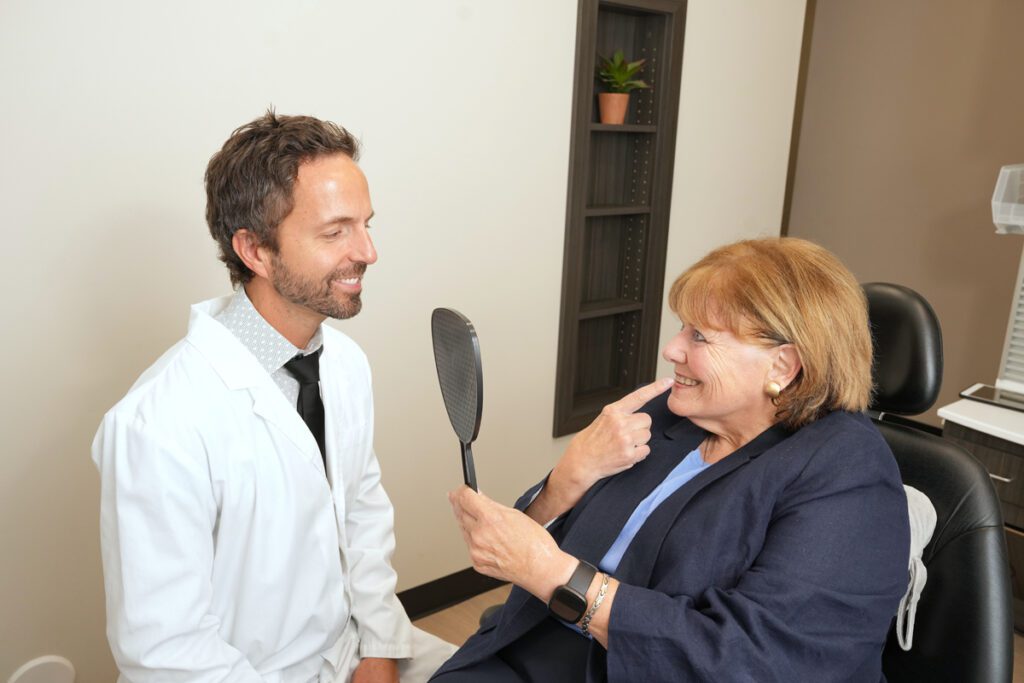Oral Surgeon Near Me West Valley City UT
Finding the right oral surgeon can feel overwhelming, especially when you’re dealing with dental pain or facing a complex procedure. Whether you need wisdom teeth removal, dental implants, or treatment for jaw disorders, choosing the right oral surgery practice in West Valley City is crucial for your comfort, safety, and long-term oral health.
This comprehensive guide will walk you through everything you need to know about oral surgery services, what to look for in a qualified oral surgeon, and how to make an informed decision that puts your health and peace of mind first. We’ll also introduce you to Pinecrest Dental’s exceptional oral surgery team and explain why we’ve become West Valley City trusted choice for oral surgical procedures.
By the end of this article, you’ll have the knowledge and confidence to choose an oral surgeon who meets your specific needs and provides the expert care you deserve.
What Is an Oral Surgeon?
An oral surgeon, also known as an oral and maxillofacial surgeon, is a dental specialist who has completed additional years of training beyond dental school to perform surgical procedures involving the mouth, jaw, face, and neck. These highly skilled professionals undergo rigorous education, including a four-year dental degree followed by a four to six-year residency program in oral and maxillofacial surgery.
Oral surgeons are equipped to handle both routine and complex surgical procedures that general dentists typically refer to specialists. Their extensive training covers anesthesia administration, pain management, infection control, and advanced surgical techniques. Many oral surgeons also complete additional fellowship training in specialized areas such as reconstructive surgery, facial trauma, or TMJ disorders.
The scope of practice for oral surgeons extends far beyond tooth extractions. They diagnose and treat conditions affecting the entire oral and maxillofacial region, including birth defects, facial injuries, oral cancer, and severe jaw disorders. This comprehensive training makes them uniquely qualified to provide both surgical treatment and ongoing care for complex oral health issues.

The Top Oral Surgery Procedures You Should Know About
Understanding common oral surgery procedures can help you recognize when you might need specialized care and what to expect from treatment. Here are the most frequently performed oral surgery procedures:
Wisdom Tooth Extraction
Wisdom tooth removal is one of the most common oral surgery procedures. Many people don’t have enough room in their mouths for these third molars, leading to impaction, crowding, or infection. Oral surgeons can safely remove wisdom teeth using advanced techniques that minimize discomfort and promote faster healing.
Dental Implant Placement
Dental implants represent the gold standard for replacing missing teeth. Oral surgeons surgically place titanium implants into the jawbone, where they integrate with the bone tissue to create a stable foundation for crowns, bridges, or dentures. This procedure requires precise planning and surgical expertise to ensure optimal placement and long-term success.
Corrective Jaw Surgery
Also known as orthognathic surgery, corrective jaw surgery addresses severe bite problems, jaw misalignment, and facial asymmetry that cannot be corrected with orthodontics alone. This complex procedure can dramatically improve both function and appearance.
Bone Grafting
When the jawbone lacks sufficient density or volume to support dental implants, bone grafting procedures can rebuild and strengthen the bone structure. Oral surgeons use various grafting materials and techniques to create a solid foundation for future restorative work.
TMJ Treatment
Temporomandibular joint disorders can cause chronic pain, difficulty chewing, and jaw dysfunction. Oral surgeons offer both surgical and non-surgical treatments for TMJ disorders, ranging from minimally invasive arthroscopy to complete joint replacement.
Oral Pathology and Cancer Treatment
Oral surgeons diagnose and treat oral cancer, cysts, tumors, and other abnormal growths in the mouth and jaw. Early detection and treatment are crucial for successful outcomes in oral cancer cases.
Why Pinecrest Dental Is Your Best Choice for Oral Surgery
Selecting the right oral surgery service requires careful consideration of factors like experience, technology, patient care, and outcomes. Pinecrest Dental has established itself as West Valley City’s premier destination for oral surgery services by consistently delivering exceptional results and patient experiences.
Our practice combines cutting-edge technology with a patient-centered approach that prioritizes your comfort and safety. We understand that oral surgery can be anxiety-provoking, which is why we’ve created an environment designed to put patients at ease while delivering the highest standard of surgical care.
What sets Pinecrest Dental apart is our commitment to staying at the forefront of oral surgery advances. We invest in the latest surgical equipment, imaging technology, and treatment techniques to ensure our patients receive the most effective and minimally invasive care available. Our surgeons regularly participate in continuing education and professional development to maintain their expertise in the rapidly evolving field of oral surgery.
We also believe in transparent communication throughout the treatment process. From your initial consultation through post-operative care, our team will keep you informed about your treatment options, expected outcomes, and recovery timeline. This collaborative approach helps ensure that you feel confident and prepared for your surgical experience.

Our Full Range of Oral Surgery Services
Pinecrest Dental offers comprehensive oral surgery services to address virtually any surgical need you might have. Our full-service approach means you can receive all your oral surgical care in one convenient location with a team that knows your case history and specific needs.
Our wisdom tooth extraction services utilize the most advanced techniques for both simple and complex cases. We can handle impacted wisdom teeth, multiple extractions, and cases requiring bone removal with minimal discomfort and optimal healing outcomes.
For patients needing tooth replacement, our dental implant services cover everything from single tooth implants to full-mouth reconstruction. We use premium implant systems and computer-guided placement techniques to ensure precise positioning and excellent long-term results.
Our corrective jaw surgery capabilities include treatment for underbites, overbites, open bites, and facial asymmetry. We work closely with orthodontists to coordinate comprehensive treatment plans that address both functional and aesthetic concerns.
When bone grafting is necessary, we offer various procedures including sinus lifts, ridge augmentation, and socket preservation. Our surgeons are skilled in using both autogenous bone grafts and advanced bone substitute materials to achieve optimal results.
For patients with TMJ disorders, we provide comprehensive evaluation and treatment options ranging from conservative management to surgical intervention. Our goal is always to achieve pain relief and restored function using the least invasive approach possible.
Finding the Perfect Oral Surgeon: A Step-by-Step Guide
Choosing an oral surgeon is an important decision that shouldn’t be taken lightly. Here’s a systematic approach to help you find the right surgeon for your needs:
Step 1: Verify Credentials and Training
Start by confirming that any oral surgeon you’re considering is board-certified and has completed an accredited oral and maxillofacial surgery residency program. Check their educational background, training history, and any additional certifications or fellowship training they may have completed.
Step 2: Research Experience and Specialization
Look for a surgeon who has extensive experience with your specific type of procedure. Some oral surgeons focus on certain areas like dental implants or reconstructive surgery, while others maintain a general practice. Choose someone whose expertise aligns with your treatment needs.
Step 3: Evaluate Technology and Facilities
Modern oral surgery requires advanced equipment and technology. Look for practices that invest in current surgical instruments, imaging systems, and anesthesia monitoring equipment. The surgical facility should be clean, well-organized, and equipped to handle emergencies.
Step 4: Consider Communication and Comfort Level
Schedule a consultation to meet the surgeon and their team. Pay attention to how well they communicate, whether they answer your questions thoroughly, and how comfortable you feel in their care. Trust your instincts about the practice’s atmosphere and approach to patient care.
Step 5: Review Patient Testimonials and Outcomes
Read online reviews and testimonials from previous patients. Look for patterns in feedback about communication, surgical results, pain management, and overall satisfaction. Don’t hesitate to ask for references if you have specific concerns.
Step 6: Understand Costs and Insurance Coverage
Discuss treatment costs upfront and verify what your insurance will cover. A reputable practice will provide clear estimates and help you understand your financial obligations before proceeding with treatment.

Your Oral Surgery Journey: From Consultation to Recovery
Understanding what to expect during your oral surgery experience can help reduce anxiety and ensure the best possible outcome. Here’s what typically happens during the oral surgery process:
Initial Consultation
Your journey begins with a comprehensive consultation where the oral surgeon will review your medical and dental history, perform a thorough examination, and discuss your symptoms or concerns. Advanced imaging studies such as panoramic X-rays or CT scans may be necessary to fully evaluate your condition and plan treatment.
During this appointment, your surgeon will explain your diagnosis, discuss treatment options, and provide detailed information about the recommended procedure. You’ll receive information about pre-operative preparation, anesthesia options, and expected recovery timeline.
Pre-Operative Preparation
Before your surgery, you’ll receive specific instructions about medications to avoid, dietary restrictions, and other preparations. If you’re having sedation or general anesthesia, you’ll need to arrange for someone to drive you home after the procedure.
The Surgical Procedure
On the day of oral surgery treatment, you’ll be made comfortable with appropriate anesthesia or sedation. The surgical team will monitor your vital signs throughout the procedure to ensure your safety. Modern anesthesia techniques and pain management protocols make oral surgery much more comfortable than many patients expect.
Post-Operative Care and Recovery
After your procedure, you’ll receive detailed post-operative instructions and any necessary medications. The surgical team will schedule follow-up appointments to monitor your healing progress and address any concerns. Most patients find that following post-operative instructions carefully leads to faster healing and fewer complications.
Long-Term Follow-Up
Depending on your procedure, you may need periodic follow-up visits to ensure optimal healing and long-term success. For procedures like dental implants, this might include monitoring integration and eventually placing the final restoration.

Schedule Your Consultation Today
Struggling with wisdom tooth pain, missing teeth, or jaw issues? Pinecrest Dental in West Valley City is here to help you regain your oral health and comfort. Our skilled oral surgery team offers expert care with a patient-first approach, ensuring exceptional results tailored to your needs.
Take the first step toward a healthier smile by scheduling a consultation today. Our friendly team will find an appointment that works for you and provide all the details you need to feel confident about your treatment. Discover why so many trust Pinecrest Dental for their oral surgery needs—your journey to better health and renewed confidence starts here!
